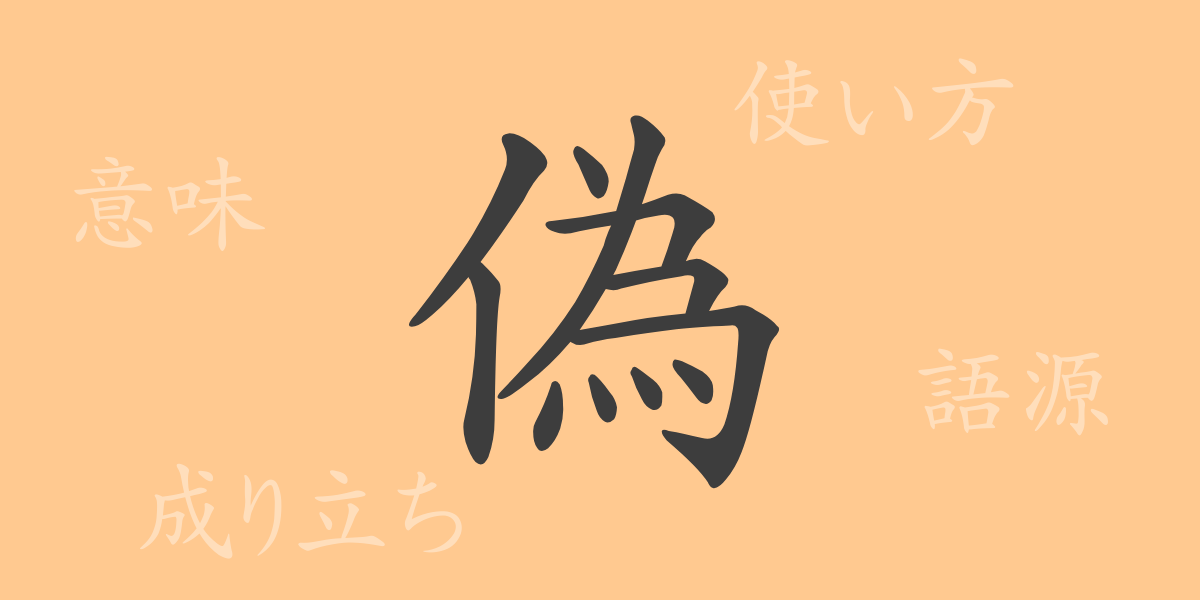The Japanese language features many kanji with rich expressive power, and among them, “偽” (gi) holds particularly deep meaning. This character is used in various contexts related to daily life, law, and ethics. In this article, we explore the history and meanings of the kanji “偽” (gi), and how it integrates into our language.
Origin of the Kanji “偽” (語源)
The kanji “偽” (gi) was formed in ancient China. Its origin symbolizes a person not acting truthfully, representing the act of falsifying something. It means deviating from the original state or truth, and has long been used to denote deceit and falsehood.
Meaning and Usage of “偽” (gi)
The kanji “偽” (gi) is used in words like “偽る” (itsuwaru, to deceive), “偽物” (nisemono, counterfeit), and “偽善” (gizen, hypocrisy). It refers to untruthful actions, fake items, or behaviors that are not genuine. It is commonly used to point out situations where someone is not being sincere or where the true nature of something is being misrepresented.
Reading, Stroke Count, and Radical of “偽” (gi)
The kanji “偽” (gi) is commonly seen in daily life, and understanding its readings and structure can be useful.
- Reading: The on-yomi (Chinese reading) is “ギ” (gi), and the kun-yomi (Japanese reading) includes “いつわ.る” (itsuwaru), “にせ” (nise), and “いつわ.り” (itsuwari).
- Stroke count: The total stroke count of “偽” (gi) is 11 strokes.
- Radical: The radical of “偽” (gi) is “人偏” (にんべん, ninben), meaning person.
Idioms, Proverbs, and Expressions Using “偽” (gi)
There are many idioms, proverbs, and expressions in Japanese that include “偽” (gi).
- 偽善者 (ぎぜんしゃ, gizensha): A person who performs good deeds insincerely, only for show.
- 偽装工作 (ぎそうこうさく, gisou kousaku): The act of disguising the truth and embellishing the surface.
- 偽装結婚 (ぎそうけっこん, gisou kekkon): A sham marriage conducted for legal benefits or social status.
- 偽りなく (いつわりなく, itsuwari naku): Speaking truthfully without lying.
- 偽物 (にせもの, nisemono): A counterfeit item made to resemble the real thing.
These expressions demonstrate the extensive usage of “偽” (gi) in the Japanese language.
Summary on “偽” (gi)
The kanji “偽” (gi) represents concepts essential to discerning truth from falsehood and valuing honesty in our society. By understanding the meanings embedded in this character, we can achieve richer communication through language. Honest dialogue without deceit builds trust and understanding.

























